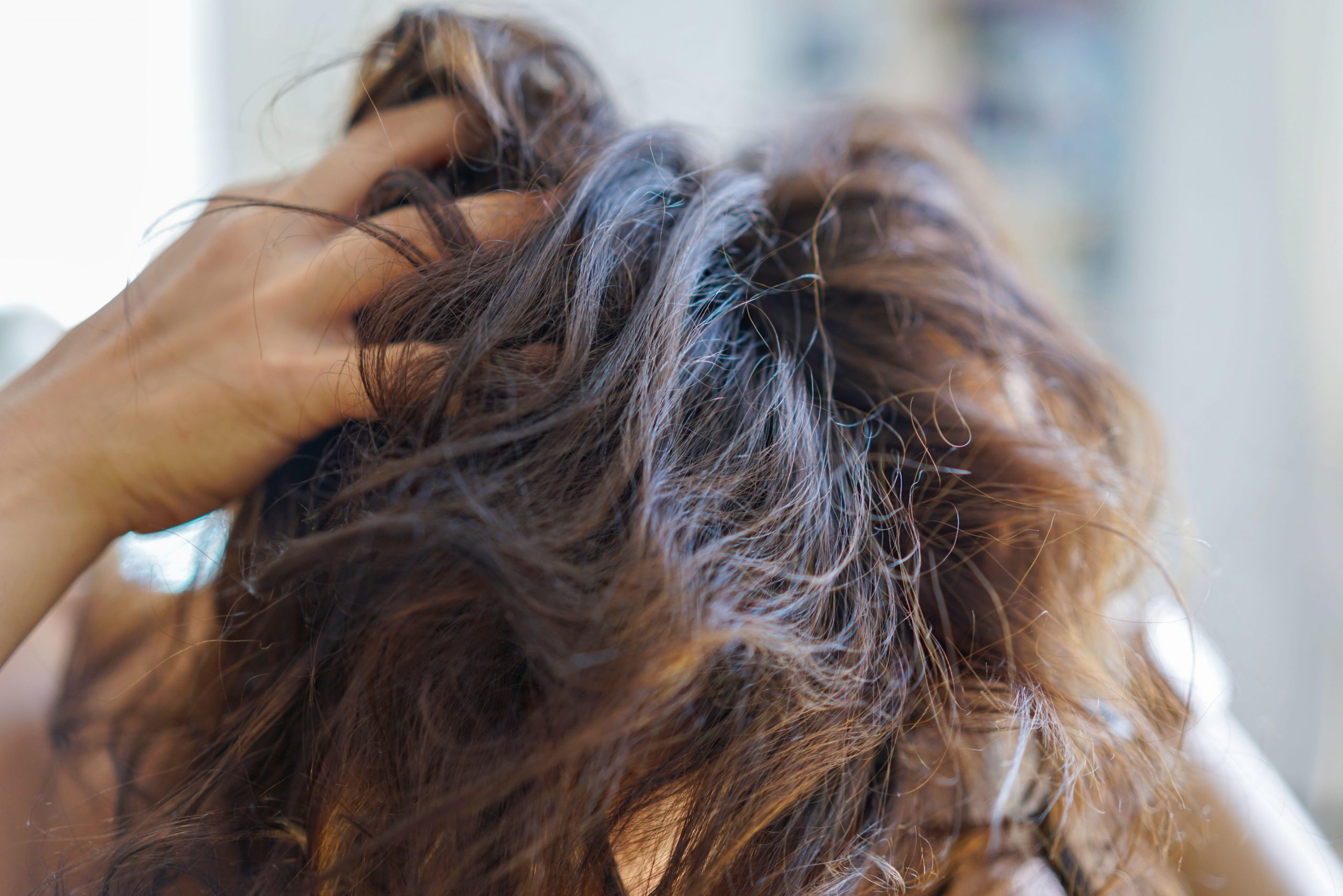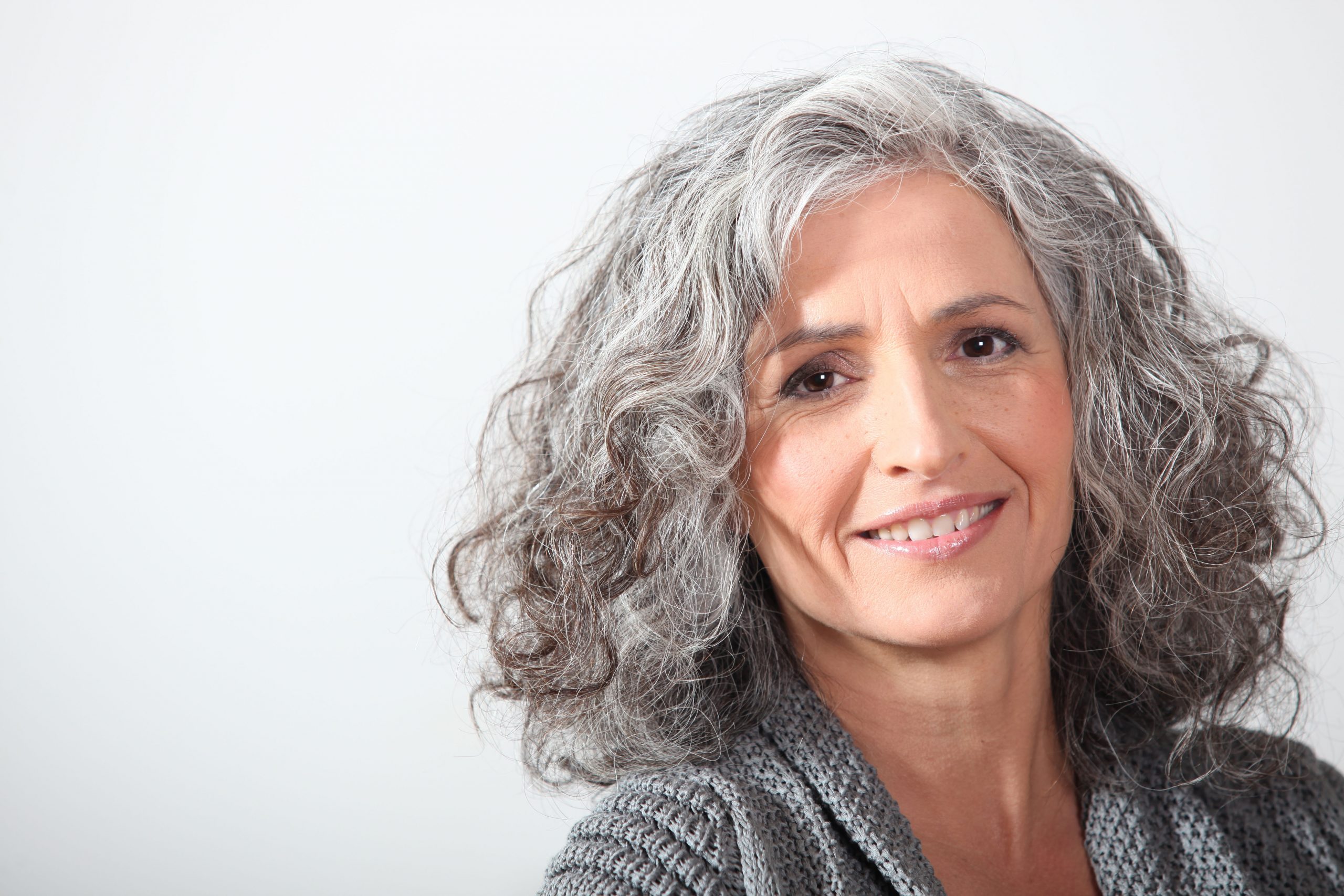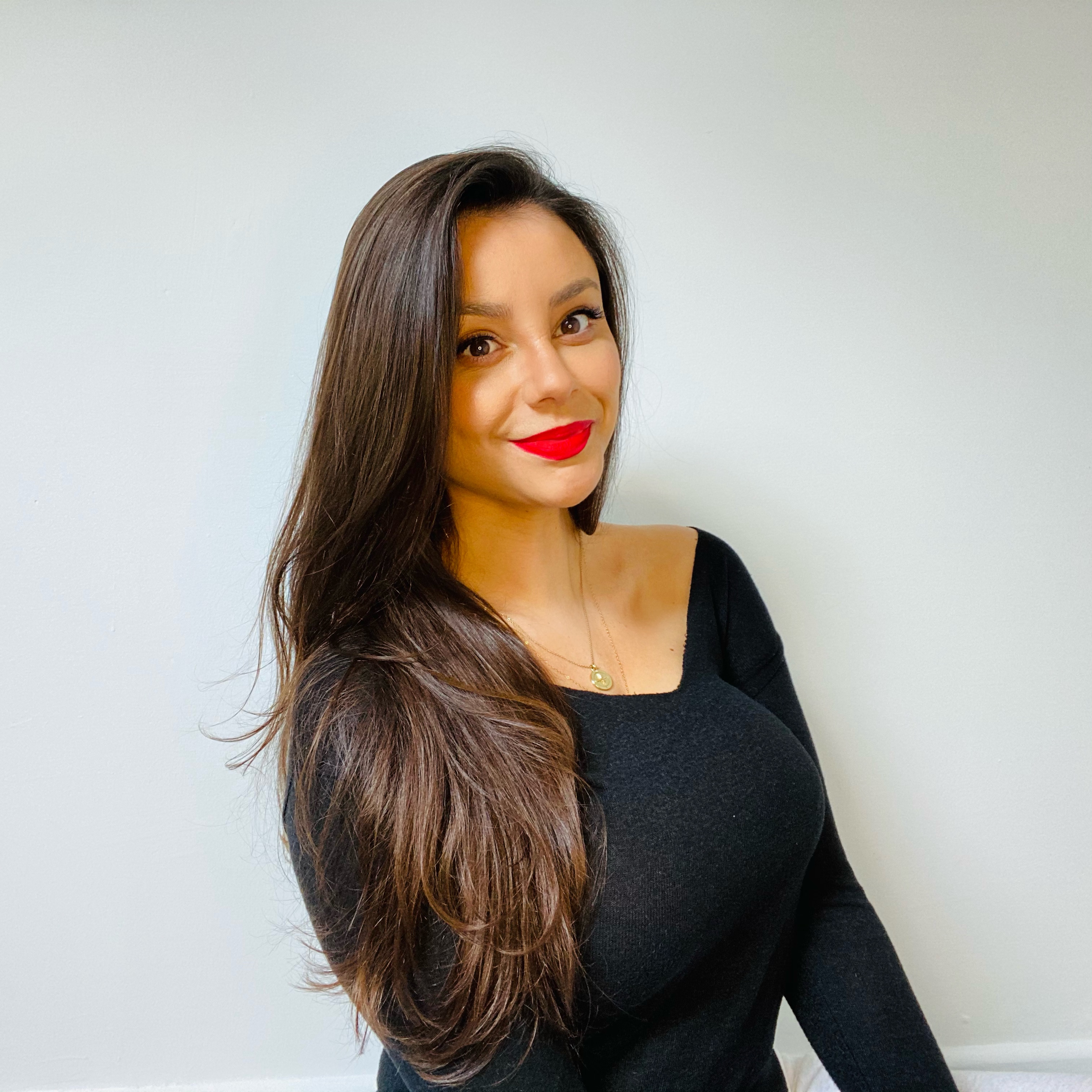Why is my hair getting frizzy as I get older? How to care for ageing hair
Chances are you will experience at least one of these 5 signs of ageing hair (if you haven't already), but how can you combat them? Celeb stylist Michael Douglas shares his top tips!


If you’ve started to notice a change in your hair and it’s feeling brittle, frizzy and drier than it was in your 20s, you’re not alone. Our bodies keep changing as we grow older and our hair is one of the first places to show this change with greys appearing, textural changes, and thinning hair.
Although we can’t prevent grey hairs or slow down the ageing process, we can stop it from affecting our hair with a few clever products and beauty tricks. You can also take steps to stop accidentally damaging your hair without realising. So, if you've noticed signs that your hair is ageing, take a look at our guide as to why your hair feels frizzy and what you can do about it.
Why is my hair getting frizzy as I get older?
The texture of our hair does naturally change as we age. Of course, significant textural changes will depend on things that have happened in life, such as whether you’ve had children, suffered from conditions like alopecia or gone through treatments like chemotherapy. But generally speaking, hair will slowly become thinner, drier, grey in colour and sometimes coarser and more brittle.
‘Frizzy’ hair is an ambiguous term as everyone has different hair types and textures, but generally means that hair is less smooth in texture, which is often caused by lack of hydration. When hair grows, it’s unable to produce its own oils and relies on the oils our scalp produces to provide nourishment, making it look and feel glossy. As we age these oils decrease, resulting in drier, frizzier hair.
Along with a change in oil production, when our hair turns grey the reduction in melanocytes (the substance that gives our hair colour) also causes hair to become dry. This drop in pigment changes the structure of the hair follicle, leaving it feeling brittle and frizzy. According to certified trichologist William Gaunitz, “Studies claim that by the age of 60 all individuals are prone to have at least some degree of greying hair, regardless of their ethnicity and genetics.” Going grey is an unavoidable fact of life but, you can make a difference with a few products.

How do I make my dry, frizzy hair smooth?
Use the right brush for your hair Celebrity hairstylist, Mark Hill suggests a smoothing or paddle brush, “[They’re] perfect for straightening, styling and reducing blow-dry time with anti-static bristles to smooth cuticles and eliminate frizz.”
Avoid bleach & dye Various things can exacerbate the rate at which your hair turns frizzy and dry. If you’ve been dying your hair your whole life, this can have a serious impact on the health and texture of your hair. Bleach works by dissolving the melanocytes leaving it ready to take on new colour but if you’re trying to prolong the health of your hair, it’s probably better to go grey, gracefully.
Stay away from heat Similarly, if you constantly heat style your hair, the high temperatures can zap your strands of their moisture, leading to more frizz so try and air-dry your hair as much as possible.
Use a mask Use a really nourishing hair mask every week like Coco & Eve Like a Virgin Super Nourishing Coconut & Fig Hair Masque (£32.90). The formula is enriched with the oils that dry hair needs so straw-like, frizzy hair feels smoother and shinier.
Nourish from the inside-out You can also try taking a supplement in order to moisturise your hair from the inside. By taking a supplement such as Vitabiotics Perfectil Original Hair, Skin, Nails (£6.50) you’ll be replacing the nutrients that your body may be lacking.
Try a treatment You may have heard of ‘bonding’ treatments which are essentially products that repair the structure of the hair (bonds keep the proteins of our hair linked and strong, when these are broken, hair becomes weak, dry and brittle.) Olaplex No 0 Intensive Bond Building Treatment (£26) works to repair these broken bonds so hair feels strong, soft and smooth.
Why does hair get dry and wiry as you age?
During menopause, numerous hormonal changes occur in your body that starts to show on the outside, and this includes hair becoming dry and wiry as you get older. Drops in the levels of oestrogen and progesterone mean hair grows more slowly, becomes thinner - and it may even start appearing on places like your chin, which is completely normal, but may leave you wondering how to speed up hair growth.
Anabel Kingsley, trichologist and president/brand owner of Philip Kingsley explains, "When your oestrogen levels drop, your hair follicles are more exposed to the influence of androgens (testosterone) – and some people’s hair follicles are genetically sensitive to testosterone. In this case, your hair follicles may begin to miniaturize, causing your hairs to grow back finer with each growth cycle. You may start to see more of your scalp through your hair, especially at the front, top and crown. This is called ‘androgenetic alopecia’, and it is a progressive type of hair loss.
"I see many Clients in our Clinics who have existing density changes that are exacerbated by menopause. I also see others who have never experienced any hair issues at all, until they are triggered by menopausal hormonal shifts."
There isn’t a way to stop the natural ageing process so it’s best to treat hair with kindness, nourish it as much as possible and try to embrace this transition. You can, however, slow the process down and keep hair strong with the tips mentioned above.

How can I revive my ageing hair?
Since your hair texture and density has changed, you may need to adapt your hair care routine to revive hair as you age. Anabel suggests a daily treatment of scalp drops, "The absolute best way to treat hair thinning during menopause is to apply stimulating, anti-androgenic scalp drops every day. The reason? Hair density changes are caused by follicle sensitivity to testosterone, so you need to use products that help block testosterone’s effect on your hair follicles. From our off-the-shelf retail range, I recommend Philip Kingsley Trichotherapy Tricho 7 Scalp Drops (£50). These have been specifically formulated by us for women with fine hair and reduced hair volume."
Anabel goes on to say that there are prescription treatments available too, "In our Clinics in London and New York, we offer prescription-only anti-androgenic Minoxidil drops. These work with a two-pronged approach. Minoxidil stimulates hair growth by prolonging the anagen (growth) phase of the hair cycle. Meanwhile anti-androgens help to block the effect that male hormones can have on the hair follicle."
We always recommend speaking to your GP if hair changes are causing you significant distress, they can then refer you to a specialist.
If you prefer to tackle your hair yourself, there are a few product changes you can make to help with ageing hair. When your body is producing less oils, there’s no need to wash your hair as frequently but when you do, use a range specifically designed for ageing hair like, Dove Pro-Age Shampoo & Conditioner (£1.75 each) which nourishes dry hair and leaves it feeling stronger and thicker.
You may want to try adding a pre-shampoo treatment when washing your hair as well such as, Oribe Gold Lust Pre-Shampoo Intensive Treatment (£67.50). This rejuvenating balm conditions hair back to its former glory, restoring moisture and strength as well as protecting it from external aggressors like stripping shampoos, heat and pollution.
How to care for ageing hair
- Ditch the towel If you shower then dry your hair in a towel, you might unknowingly be causing significant damage to your hair. The rough texture of most towels can be incredibly abrasive on delicate hair strands so instead, use a microfibre hair wrap to dry your hair. We love Aquis Lisse Luxe Hair Turban (£30) as it keeps the shaft smooth and dries hair really quickly without any damage.
- Regular cuts To look after your hair in the long term, keep getting regular cuts or consider cutting your own hair if you're brave enough. Many women opt for shorter and anti-ageing hairstyles when they get older as it can give the illusion of thicker looking hair. You don’t necessarily have to cut your hair short but, keeping your hair regularly trimmed will keep it looking in great condition.
- Brush gently Buy a brush or comb that will be really gentle on your hair to minimise damage. Hair is particularly weak when it’s wet so be careful when styling it after a bath or shower. The Mark Hill Paddle Brush (£11) won’t snag hair and is great for detangling.
Looking for more expert recommendations? Check out these 14 long-lasting perfumes and the best Black Friday perfume deals available this year.
Parenting advice, hot topics, best buys and family finance tips delivered straight to your inbox.

Emma North is a Senior Beauty Writer who works for digital titles including woman&home, Woman, Woman’s Weekly, Woman’s Own, Chat and GoodtoKnow. Emma’s career in beauty journalism began with internships at publications including Vogue, Elle, The Telegraph and Glamour while she undertook a degree in journalism. She was then taken under the wing of Funmi Fetto, Contributing Beauty Editor at Vogue where Emma assisted with Funmi’s debut beauty book, Palette